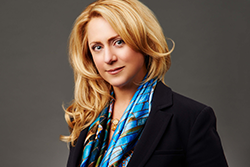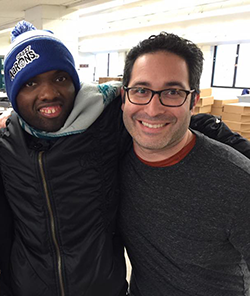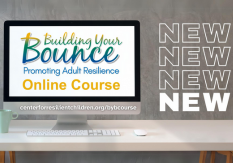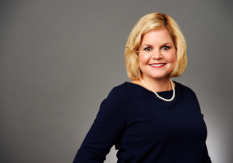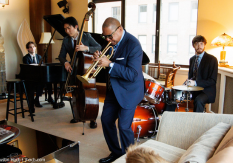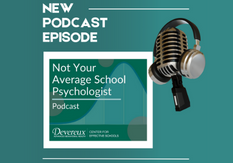|
|
|||||||||||||||
The People behind the Putty: Talking Shop with Crazy Aaron’s Founder Aaron MuderickCrazy Aaron’s Thinking Putty is designed to relieve stress and inspire creativity. Since 2002, founder and CEO Aaron “Crazy Aaron” Muderick has been dedicated to supporting important charitable organizations – including nonprofit behavioral healthcare provider Devereux Advanced Behavioral Health – to employ and empower individuals with disabilities. Today, the manufacturer of Thinking Putty employs more than 800 individuals with intellectual and developmental disabilities. Recently, Muderick caught up with Devereux Senior Vice President of External Affairs Leah Yaw to talk putty, people and perspective.
Leah Yaw: Crazy Aaron’s Thinking Putty was invented as a result of your creativity, determination and your penchant for fun. Today, your company is a successful business with a global footprint. Amazing! And since going into the putty business full-time in 2002, you’ve always employed individuals with disabilities. For us at Devereux, helping individuals with special needs find meaningful work and community engagement is among the most important things we do. Why is this an important issue for you? Aaron Muderick: We have been lucky enough to build our business around individuals with special needs. In 2002, when Crazy Aaron’s was taking off, it was just myself, my wife and a few teenagers from the neighborhood. We just couldn’t keep up and we knew we needed help. Back in high school, I had worked in a dog tag factory and there were a number of employees with special needs among the employee population. I noticed that they were the happiest employees at the company; they came in to work every day with a smile and a bounce in their step. I wanted to be in a situation where I could build personal relationships with people who would be committed to a common cause. One of my neighbors had a sister who worked in a vocational workshop, and she suggested I connect with them. It took a little while to figure out this new model, in terms of cost, quality and efficiency but, eventually, we created a very successful relationship with the workshop. From there, our business kept growing, so we needed more help. Today, we work with seven Philadelphia-area vocational centers – employing many exceptional individuals with intellectual and physical disabilities. LY: It’s clear these individuals are essential to your business, yet not all companies embrace the same model. Why is employing individuals with special needs important to you? AM: I am going to get a little philosophical but, as adults without disabilities, we often think work is simply about making money. We work because our boss says we have to, and if we won the lottery, we believe we would quit our jobs. But that’s not what work is about at all. Work is about finding purpose in your life. Work helps you make connections with your community. I feel individuals with intellectual and developmental disabilities often have a clearer and truer sense of the meaning of work, because the world isn’t offering them as many opportunities. Work is more meaningful to them, and that’s important to me. The key to any successful organization is to have a dedicated, committed team who gives it their all – every day. This defines our employee population with special needs. LY: In many ways, this resonates with the beliefs of our founder, Helena T. Devereux, who recognized that all children could learn and achieve personal growth in an environment tailored to their needs. But it wasn’t without challenges. What types of challenges do you face and how do you overcome them? AM: With any group of employees, there will always be challenges. With this business model, what we’ve found is that everything might run smoothly for several weeks, and then we get a delivery of our product from a workshop and it’s not quite right. But the mistake is a failure of process – not people. So we work to fix the process, to put the right checks and balances in place so it doesn’t happen again. We are grateful that our customers have been supportive of our business practices during the years it has taken to work out all the kinks. Even on days where everything seems to be going wrong, even a simple smile from one of these employees makes all the hard work worthwhile. LY: At Devereux, we often hear inspiring stories from both employers and the individuals we serve about the transformative impact of this unique partnership. Ultimately, these stories are what motivates us to unlock and nurture human potential for people living with emotional, behavioral or cognitive differences. Do you have any stories that stand out from your years of working with individuals with disabilities? AM: I try to interact with all of my employees. I like learning from people with different backgrounds and perspectives. The most fantastic inventions and discoveries have come from just connecting the dots. And I think people with disabilities bring a very unique perspective, and you can learn a lot about the world looking at it through that lens. For instance, we had an employee, Brian, who was a real charmer. When we got our first piece of putty mixing equipment, all he wanted to do with it was make cherry pies. Every time I came by, he would ask, “Are we making cherry pies today?” And I would say, “No Brian, we are making blue putty.” Next day, “Are we making cherry pies today?” “No Brian, we’re making orange putty.” He never gave up in his desire to make a gigantic cherry pie, and his outlook and upbeat spirit inspired me. For him, the possibility that, one day, we might make a giant cherry pie, kept him coming to work every day with a smile. Who knows? Maybe one day I’ll find a huge oven in a surplus warehouse and we can make the dream come true! LY: What a wonderful story. We hear similar accounts from businesses about their experiences working with folks with special needs, and how it’s made their work environment more successful. What do you feel you’ve learned, personally, working with individuals with special needs? AM: Carpe Diem – seize the day. I see people with incredible challenges – physical and developmental – some with chronic pain and with limited mobility, putting their all into a job they love. It’s truly amazing to me. Life is short and if you don’t take advantage of living your true life today, you may not have an opportunity to do it tomorrow. LY: What advice do you have for companies that might want to follow your lead, but don’t know where to start? AM: My advice is to reach out to other businesses that have done it (and there are many!), to help you understand expectations, and then reach out to an organization like Devereux who will be a supportive partner for you and your team. Then recognize that you have to crawl before you can walk, and walk before you run. Business often speaks in a very different language than social services. But that doesn’t mean the two can’t learn to understand each other. If you stick with it, you’ll get the long-term reward of making a positive impact in people’s lives. Learn about Devereux Advanced Behavioral Health.
Latest News
|
|||||||||||||||
- Home
- About Us
- Advanced Philosophy of Care
- Mission, Values and Service
- Our Commitment to Safety
- Our History
- Senior Leadership Team
- Devereux Board of Trustees
- Annual Reports
- Devereux in the News
- Diversity, Equity, Inclusion and Belonging
- Recognizing Our Employees
- Celebrating Our Devereux Families
- Sharing Messages of Hope
- Who We Help
- Locations
- Supporting Devereux
- Training and Consulting
- Careers


